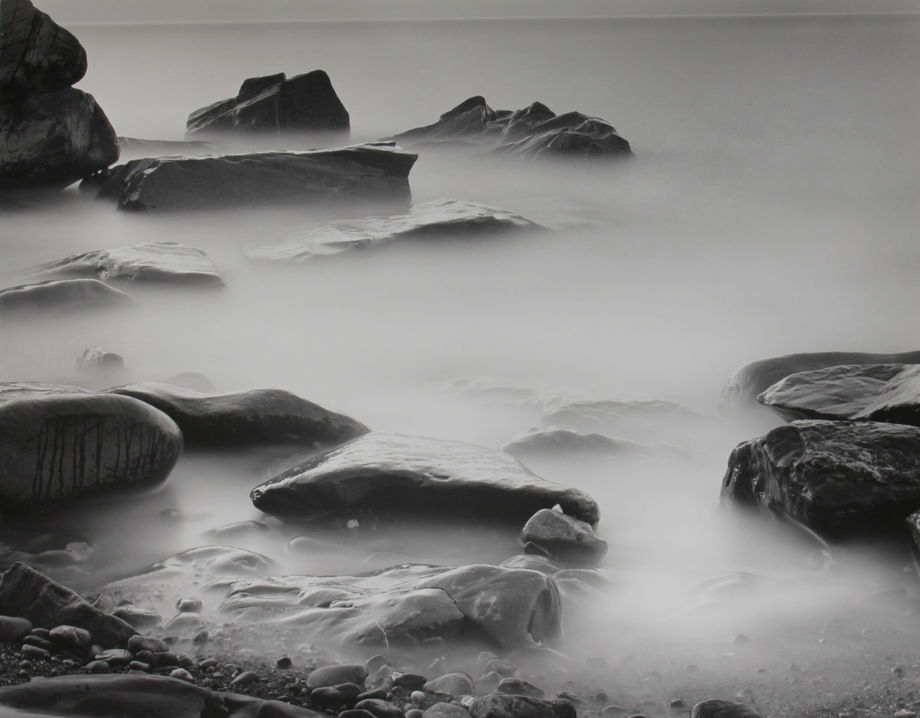John Blakemore was one of the greatest British photographers and darkroom printers of the last half century.
One of the leading photographers of landscape and nature in the world, his equisite prints, each subtly different - whether the result of toning or variations in exposure - represent interpretative responses to the subject before him.
Blakemore was born in Coventry in 1936. In the 1950s he travelled to Libya with the Royal Air Force whilst on National Service, and it was during this time he discovered photography. Further inspiration came from Edward Steichen's The Family of Man and also childhood experiences during the second World War.
Following his return from National Service, Blakemore, began to photograph the people of Coventry and its reconstruction after the war. Completely self-taught, John Blakemore worked under the Black Star agency as a freelance photographer. He then evolved his personal work to focus on nature, the environment and natural processes such as wind, water and light. Having spent many years in the landscape, later works move in doors to the recurrent motif of the tulip and from Shaker-like simplicity to a more Baroque flamboyance.
John Blakemore is celebrated for the detail, texture and tonal richness of his work. Blakemore began teaching in the late 1970s, and became a major figure in what was then seen as a 'British obsession with photography'. He was a Emeritus Professor of Photography at the University of Derby, where he taught from 1970 to 2001.
John Blakemore's books include Inscape (1991), Stilled Gaze (1994) and John Blakemore's Black and White Photography Workshop (2005). His work has been exhibited world-wide and he is widely regarded as one of the finest photographers and printers in the United Kingdom. Blakemore has been the recipient of Arts Council awards, a British Council Traveling Exhibition and in 1992 he won the coveted Fox Talbot Award for Photography.
Blakemore was made an Honorary Fellow of the Royal Photographic Society in 1998.

